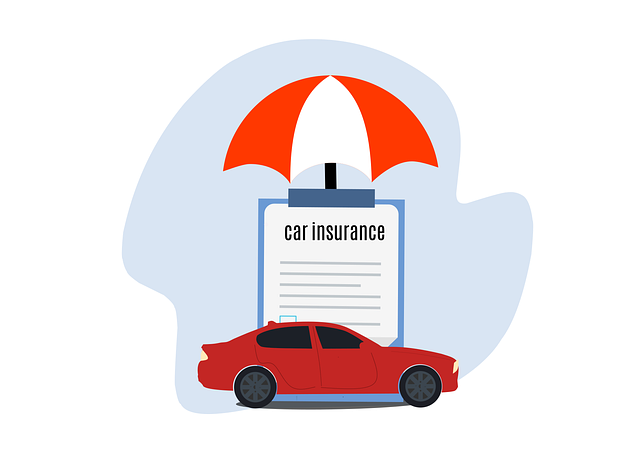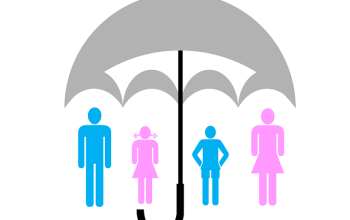businesses must secure a tailored insurance package to navigate the complex landscape of legal obligations and financial risks associated with their operations. This includes General Liability Insurance for third-party claims, Professional Liability Insurance (Errors & Omissions) for claims against professional services, and Business Liability Coverage that encompasses these along with Public Liability Insurance for public interactions and Product Liability Insurance for potential product harm. Employer's Liability Insurance is non-negotiable for businesses with staff, covering work-related injuries or illnesses, while Commercial Liability Insurance offers a comprehensive suite of protections against a broader range of business risks. Small businesses, in particular, need to carefully select these coverages to comply with legal requirements and protect their financial stability, ensuring they are prepared for employee claims, third-party lawsuits, and other liability scenarios. This holistic approach, integral to a robust Small Business Insurance strategy, is essential for maintaining the integrity of operations and safeguarding the longevity of the business in an unpredictable legal environment.
When incorporating employees into your business, it’s crucial to secure robust liability insurance. Employer’s Liability Insurance is an indispensable safeguard mandated for businesses with workforce, shielding against financial repercussions from employee injuries or illnesses incurred on the job. This coverage not only protects your staff but also ensures your company’s fiscal health by covering compensation and legal defense costs. Diving into the intricacies of this essential protection, our article elucidates its necessity, distinguishes it from other liability coverages like General, Professional, and Product Liability Insurance, and emphasizes its role in small business insurance plans for enduring financial challenges. Understanding its scope relative to other commercial liability insurances is key for any business aiming to maintain operational integrity and resilience.
- Navigating Mandatory Employer’s Liability Insurance: A Critical Shield for Businesses with Staff
- Understanding the Scope of Employer’s Liability Insurance vs. General, Professional, and Product Liability Coverages
- The Financial Safeguard Provided by Employer’s Liability Insurance in Work-Related Injury or Illness Claims
- Integrating Employer’s Liability Insurance within Small Business Insurance Plans: A Necessary Step for Financial Resilience
- Comprehensive Commercial Liability Insurance: Beyond Employer’s Liability to Protect Your Business Operations
Navigating Mandatory Employer’s Liability Insurance: A Critical Shield for Businesses with Staff
Navigating the requirements for Employer’s Liability Insurance is a critical step for businesses with staff, as it ensures compliance with legal obligations and financial protection against work-related injuries or illnesses. This type of insurance is distinct from General Liability Insurance, which covers third-party claims, and Professional Liability Insurance, which addresses claims arising from professional services rendered. Businesses must consider obtaining both Employer’s Liability Insurance and Product Liability Insurance to cover the unique risks associated with having employees and manufacturing or supplying products respectively. Employer’s Liability Insurance is specifically designed to provide coverage for claims made by employees who sustain work-related injuries, ensuring that employers can meet the costs of compensation and legal defense fees without jeopardizing their business’s financial health. This coverage is indispensable for small businesses, which often lack the deep reserves larger corporations possess and can therefore be particularly vulnerable to the financial impact of employee claims. In contrast to Employer’s Liability Insurance, Public Liability Insurance covers claims from third parties, while Commercial Liability Insurance encompasses a broader range of risks that could affect a business’s operations. Understanding these distinctions is key for businesses to ensure they have the appropriate level of protection and can navigate the complexities of risk management effectively. It is important for businesses to evaluate their specific needs and consult with insurance professionals to tailor a policy that aligns with their operational risks and legal requirements, thereby safeguarding their employees and financial stability.
Understanding the Scope of Employer’s Liability Insurance vs. General, Professional, and Product Liability Coverages
Employer’s Liability Insurance and other liability coverages serve distinct roles within a business’s risk management framework. At its core, Employer’s Liability Insurance is specifically designed to protect businesses from claims arising from work-related injuries or illnesses sustained by employees. This coverage is mandatory for employers with staff and provides financial security against the costs of compensation and legal defense fees should an employee bring a claim related to their employment.
In contrast, General Liability Insurance, also known as Commercial Liability Insurance, offers broader protection beyond the scope of workplace-related incidents. It covers third-party claims involving bodily injury, property damage, and personal and advertising injury. Small Business Insurance plans often include this coverage, safeguarding businesses from the myriad risks they face in their daily operations, such as slip-and-fall accidents on commercial premises or damage caused by a business’s product or service.
Professional Liability Insurance, another essential form of Business Liability Coverage, is tailored for professionals and companies providing advice, services, or design. It shields against claims alleging negligence, errors, or omissions in one’s professional duties. This type of insurance is crucial for professions where the advice given or the service provided has a direct impact on client outcomes.
Product Liability Insurance specifically addresses the risks associated with the manufacturing and distribution of products. It covers claims arising from product defects or malfunctions that lead to injury, damage, or financial loss to consumers. Ensuring this coverage is particularly important for businesses dealing with physical goods, as it protects against the significant costs that can arise from liability claims, including legal defense and settlements.
Understanding the nuances between these types of Business Liability Coverage is essential for comprehensive risk management. Each serves a unique purpose, and while they may overlap in certain areas, they are distinct in their specific coverages and scope. Businesses must carefully assess their operations, potential risks, and legal obligations to determine the appropriate combination of insurance policies to fully protect their assets and financial well-being. Public Liability Insurance further complements these coverages by offering protection against liability for accidents caused to the public, clients, customers, or third parties. It is a critical consideration for businesses looking to safeguard their interests in an unpredictable business environment.
The Financial Safeguard Provided by Employer’s Liability Insurance in Work-Related Injury or Illness Claims
Employer’s Liability Insurance serves as a critical financial safeguard for businesses with employees, particularly in the event of work-related injury or illness claims. This insurance is designed to protect employers from the economic consequences associated with such claims, ensuring that they can meet the compensation and legal defense costs without undue financial burden. It is an indispensable element within a comprehensive risk management strategy for any business, large or small. In the unfortunate event that an employee sustains an injury or falls ill due to their work, this insurance provides a financial buffer, covering the necessary expenses related to the claim. This not only includes direct compensation payments but also legal fees that may arise from litigation. By having Employer’s Liability Insurance in place, businesses can avoid the potential financial strain that could otherwise jeopardize their operational capabilities and long-term viability. It is a form of General Liability Insurance tailored specifically to occupational risks, complementing other liability coverages such as Professional Liability Insurance, Product Liability Insurance, and Public Liability Insurance within the Small Business Insurance umbrella. For businesses operating in sectors with higher exposure to claims, such as those offering services or manufacturing products, Commercial Liability Insurance ensures that they remain financially resilient against the varied risks they face. This insurance is not only a legal requirement for many industries but also an integral part of safeguarding a business’s financial health and maintaining its reputation within the marketplace.
Integrating Employer’s Liability Insurance within Small Business Insurance Plans: A Necessary Step for Financial Resilience
Integrating Employer’s Liability Insurance within Small Business Insurance Plans is a critical step for financial resilience, particularly for businesses with employees. This specialized coverage is designed to protect against claims arising from work-related injuries or illnesses, ensuring that employers can meet the necessary compensation and legal defense costs without jeopardizing their business’s financial stability. It’s a component that should be an integral part of a comprehensive small business insurance plan. When considering the various types of liability insurance, it’s important for small business owners to recognize the distinctions between General Liability Insurance, which covers third-party claims, and Employer’s Liability Insurance, which specifically addresses employee-related incidents. Both are vital for different reasons; General Liability Insurance safeguards against claims of bodily injury, property damage, and personal and advertising injury, while Employer’s Liability Insurance provides coverage for claims related to occupational diseases or injuries sustained by employees during the course of their work.
Complementing these with Professional Liability Insurance, also known as Errors and Omissions Insurance, and Product Liability Insurance ensures a robust defense against a wide array of potential liabilities. This comprehensive approach to liability coverage under a Small Business Insurance plan is not just about mitigating risks; it’s about securing peace of mind. It allows business owners to focus on running their operations without the constant worry of unforeseen legal and financial repercussions that could arise from employee-related claims. By integrating Employer’s Liability Insurance, alongside other essential business liability coverages like Commercial Liability Insurance, businesses can fortify themselves against the unexpected, maintaining their financial resilience in the face of any work-related claim. This holistic approach to liability insurance within a small business insurance plan is indispensable for safeguarding both the employees and the future of the company itself.
Comprehensive Commercial Liability Insurance: Beyond Employer’s Liability to Protect Your Business Operations
For businesses with a broad array of operations, beyond the mandatory Employer’s Liability Insurance, comprehensive Commercial Liability Insurance is indispensable. This umbrella encompasses various types of liability coverage that cater to different aspects of business operations. General Liability Insurance serves as a foundational layer of protection by covering third-party claims related to property damage or bodily injury that occurs as a result of business operations. This is particularly crucial for small businesses, which may face significant financial repercussions from such claims without adequate coverage.
Furthermore, Professional Liability Insurance, also known as Errors and Omissions Insurance, is tailored for businesses providing professional advice or services. It safeguards against claims alleging negligence, errors, or omissions in professional duties, which can be detrimental to a company’s reputation and finances. Additionally, Business Liability Coverage extends protection to various aspects of business activities, including those not directly related to the core service or product. Public Liability Insurance specifically addresses liability arising from interactions with the public, offering financial security against claims for personal injury or damage to property.
Product Liability Insurance is another critical component for businesses that manufacture, distribute, or sell products. It covers legal costs and compensation claims if a product causes harm or does not meet the expected standard of quality. Ensuring comprehensive coverage through Commercial Liability Insurance ensures that your business is prepared for a multitude of liability scenarios, thereby safeguarding both the financial health and long-term viability of your operations. This robust protection is essential for a comprehensive risk management strategy, providing peace of mind that your business can withstand unexpected legal challenges without compromising its stability or success.
In conclusion, the necessity of Employer’s Liability Insurance for businesses with employees cannot be overstated. This critical coverage serves as a vital financial safeguard, ensuring that employers can manage the costs associated with work-related injuries or illnesses without undue financial hardship. Distinct from General Liability Insurance, Professional Liability Insurance, and Product Liability Insurance, Employer’s Liability Insurance is specifically tailored to protect against employee claims, making it an indispensable element of a robust Small Business Insurance plan. By integrating this coverage into their overall liability strategy, businesses can achieve financial resilience and maintain operational continuity. As part of Commercial Liability Insurance, Employer’s Liability Insurance underscores the importance of comprehensive risk management, safeguarding both the workforce and the company’s fiscal integrity in an unpredictable business landscape.



